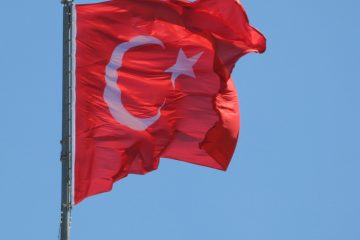
Coup attempt and terror bombings demonstrate Turkish lives don’t matter to Erdoğan and the AKP
Last week’s coup attempt by military forces in Turkey — the military’s first overt attempt to take power since 1980 — came as a great shock to the international community. At least 290 people were killed and 1,440 wounded. The coup also spurred a dramatic wave of purges; less than 24 hours after the turmoil began, 2,839 army members and a member of the constitutional court were arrested, while 2,745 judges and five members of the Supreme Board of Judges and Prosecutors were removed from their posts. The purges only intensified thereafter; within a week, about 60,000 soldiers, police, judges, civil servants and teachers found themselves detained, suspended or under investigation. The government’s rhetoric and consistent inaction, contextualized within its wider response to the …

Angola’s Perfect Storm
In a new article for Foreign Affairs, I discuss the perils of Angola’s reliance on declining oil revenues. Here are the first few paragraphs. In early 2014, Angola, sub-Saharan Africa’s second-largest oil producer and third-largest economy, was flush with cash and confidence. The economy had expanded tenfold over the previous decade, and the government, which in 2002 won a resounding victory in the country’s long civil war, was unchallenged at home, a towering presence in regional politics, and a major investor abroad, including in Portugal, the former colonial power. Its national reconstruction agenda funneled tens of billions of dollars into infrastructure and transformed Luanda into a would-be African Dubai that attracted thousands of expatriates. The rule of Angolan President José Eduardo …
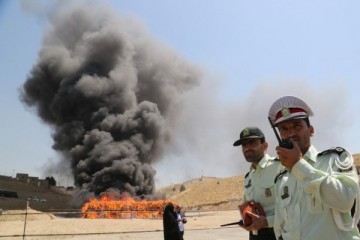
Could Iran be the next country to legalise cannabis and opium?
After Uruguay courageously legalised the use of cannabis under a new drug policy, could Iran be the next country to make it legal? From the outside, the image of Iran as retrograde and inherently conservative hardly fits with the reality of a more dynamic domestic political debate within. But drug policy is one of the areas of debate in which the Islamic Republic has produced some interesting, yet paradoxical, policies. Iran has a conspicuous drug addiction problem – which officially accounts for more than 2m addicts (though unofficial figures put this as high as 5-6m). Drug traffickers risk harsh punishments that include the death penalty. Yet Iran also has very progressive policies towards drug addiction, which include distribution of clean …
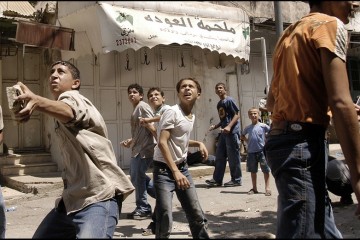
Academic Diary: Escalating violence in Israel, a view from Bethlehem
As I am sitting here writing this contribution at 8:50 in the morning, I can already hear signs of the relentless fighting that has been going on for over ten days around Rachel’s Tomb in Bethlehem: Soldiers shooting tear gas canisters, military jets are flying over the area, ambulances rushing to the scene and hundreds of impatient drivers waiting to cross the area honking without let-up. Riots had kicked off in the area in response to the current dispute between Israeli Jews and Arabs about the administration of the Temple Mount in Jerusalem. The Muslim religious site is administered by Jordan and Jews are allowed to visit but not to pray there. Increased Jewish visits in recent times have raised …
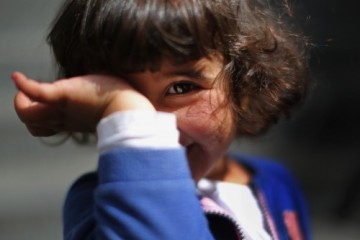
Dear Prime Minister – it’s time to do much, much more to help Europe’s refugees
In a letter published in The New Statesman, a number of Oxford academics argue that the current government position is bad policy, bad politics and a betrayal of a proud British tradition. Dear Prime Minister and Home Secretary, We the undersigned are dedicated to creating a socially just world. We spend our working lives supporting and promoting research, initiatives, and projects which will create a fairer and more equitable society for everyone. Among our number are many leading experts on community cohesion, asylum, refugees, migration, politics, public opinion, policy and law. We believe the Government’s current position on the European refugee crisis is misguided and requires urgent change. Britain has a long and proud tradition of providing sanctuary to those in …
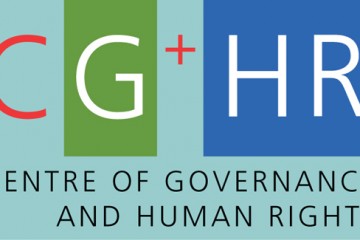
International intervention and the politics of building peace: ‘liberal imperialism’ or somewhat irrelevant?
International intervention in war-affected regions is the subject of much academic attention. Scholars and policymakers alike have been keen to understand the impacts, positive and negative, that international actors have when striving for peace in foreign countries. More often than not, the continuation of violence in areas that have been subject to heavy intervention, from Sudan to DRC, has generated staunch critique of the potential of such programmes to achieve their stated aim of ‘peace’. Africanist scholars in particular have identified efforts geared towards the increasingly linked aims of development and security as not merely ineffective, but exacerbating dysfunctional politics, insecurity and poverty across the continent. Following the wider critique of the liberal peace, interveners from UN peacekeepers to human …
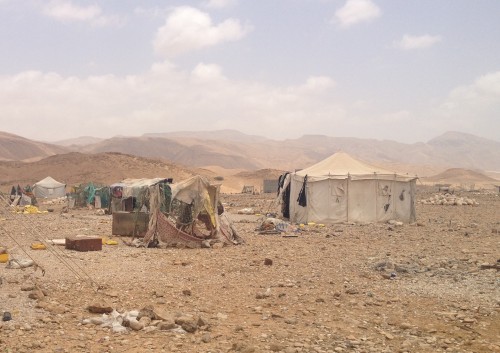
How does al-Qaeda attract Yemenis?
I recently wrote an article on the BBC website about the current situation in Yemen. As the recent experience of several Middle Eastern countries has shown, when governments break down, terrorist groups flourish. Yemen is the latest casualty. The unraveling of Yemen’s government and subsequent civil war has only increased the operational reach of al-Qaeda. A Saudi-led coalition, backed by the US and UK, is currently conducting air strikes against Yemen’s Houthi-led rebels. The latter swept into Yemen’s capital last September and consolidated their grip on power earlier this year assisted by former president Ali Abdullah Saleh, who maintained control of much of Yemen’s military apparatus. Ironically, this international military campaign is playing into al-Qaeda’s hands in several ways: by targeting al-Qaeda’s own domestic enemies; by employing sectarian rhetoric that plays up Sunni-Shi’ite fault lines previously insignificant in Yemen; by destroying Yemen’s military hardware that had been used against al-Qaeda; and by enabling al-Qaeda to exploit the lawless war-torn environment to expand its influence and build alliances among southern and eastern tribes to combat the mutual Houthi foe.
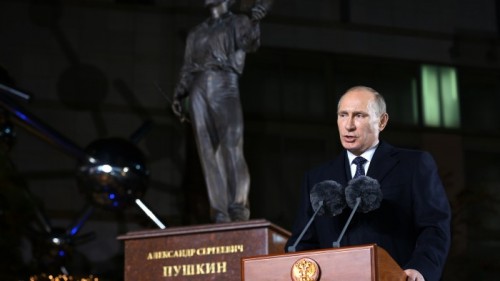
Putin’s nationalism problem
The crisis in Ukraine has produced a new narrative about Vladimir Putin’s leadership. In contrast to the stated modernising goals of his first two presidencies – the achievement of greater state efficacy and the improvement of living standards and prosperity for ordinary Russian citizens – Putin has been recast as the saviour of the Russian nation. This new narrative includes a mission to protect the citizens of the ‘Russian World’ that live beyond the borders of the Russian Federation. In some analysis, this has led to parallels with Slobodan Milosevic’s political journey in the former Yugoslavia (Whitmore, 2014).
Yet, while Vladimir Putin has shown strong patriotic instincts throughout his political career, he is not a natural nationalist. In an article titled ‘Russia: The Ethnicity Issue,’ which Putin published in January 2012 ahead of the presidential election, his ambiguous support for ethnically-based nationalism was apparent. He warned about the dangers that ethnic chauvinism posed to the territorial integrity of the Russian state: ‘I am convinced that the attempts to preach the idea of a “national” or monoethnic Russian state contradict our thousand-year history,’ he averred, ‘this is a shortcut to destroying the Russian people and Russian statehood, and for that matter any viable, sovereign statehood on the planet’ (Nezavisimaya Gazeta, 2014). Moreover, his regime’s relationship with the nationalist leadership in eastern Ukraine, and their ideological backers in Russia, has not always been cordial during the Ukrainian conflict. Putin’s commitment to the creation of a new territory, ‘Novorossiya,’ which would lead to the breakup of Ukraine, has been questioned by nationalist ideologues and militia leaders throughout the crisis (Sonne, 2014).









